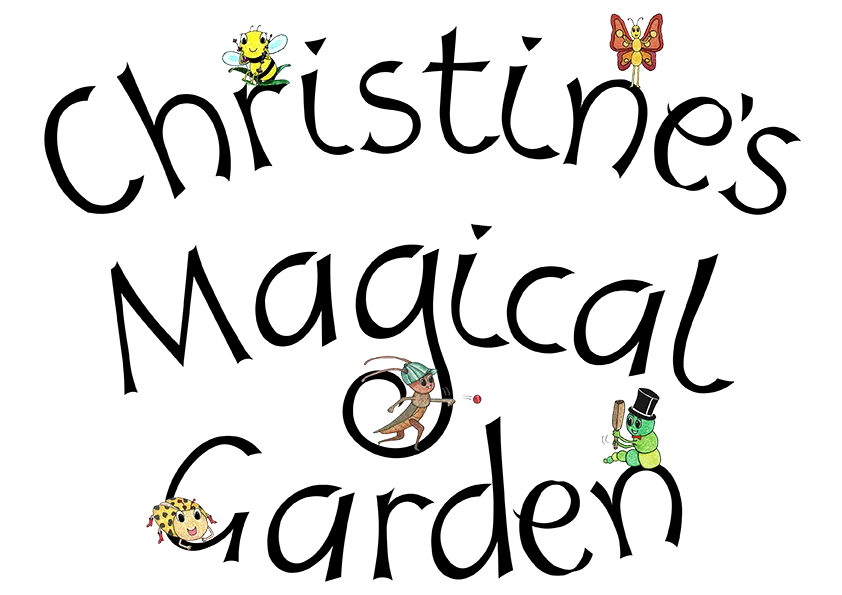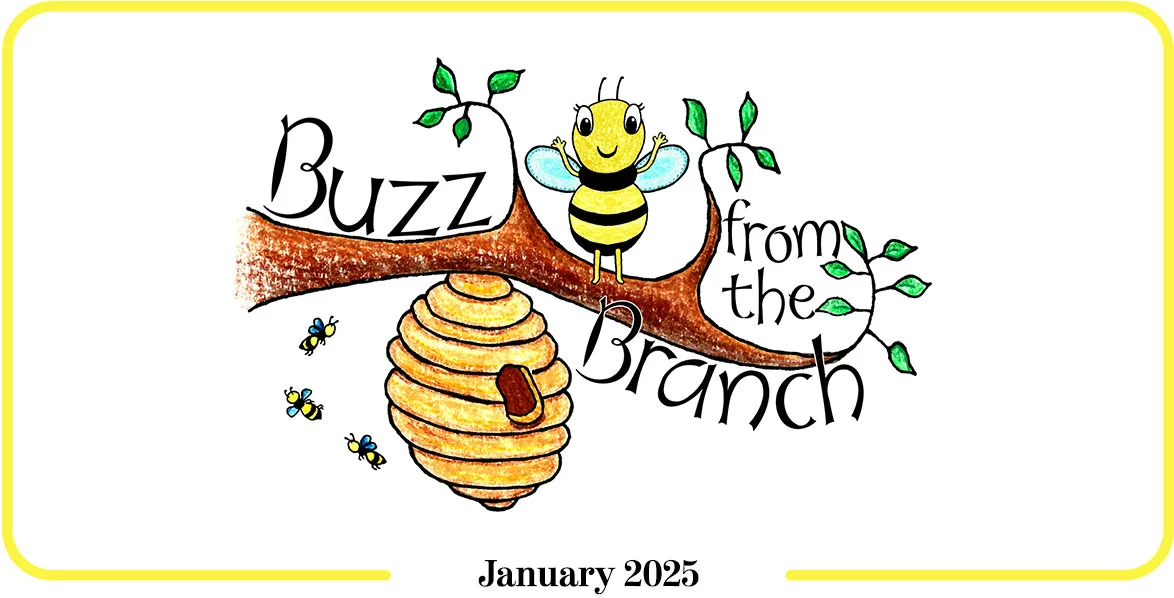
The Magic of Sand Play: Why it Matters for Your Child’s Development
Dear Magical Garden Families,
Happy New Year!
It is a beautiful summer here in Australia as we’ve stepped into January and into the brand-new year of 2025. It’s amazing to imagine that the turn of the last century is now itself a quarter of a century ago! How time flies and how quickly our children are growing up.
Speaking of growing up, Buzzy, The Gang and I are excited to share with you some insights into the significance of a childhood experience that is easily underestimated: SAND PLAY!
Whether it’s building castles at home in a back yard sandpit, at the playground, or at the beach, playing with sand offers children a unique opportunity for creative learning and social interactions.
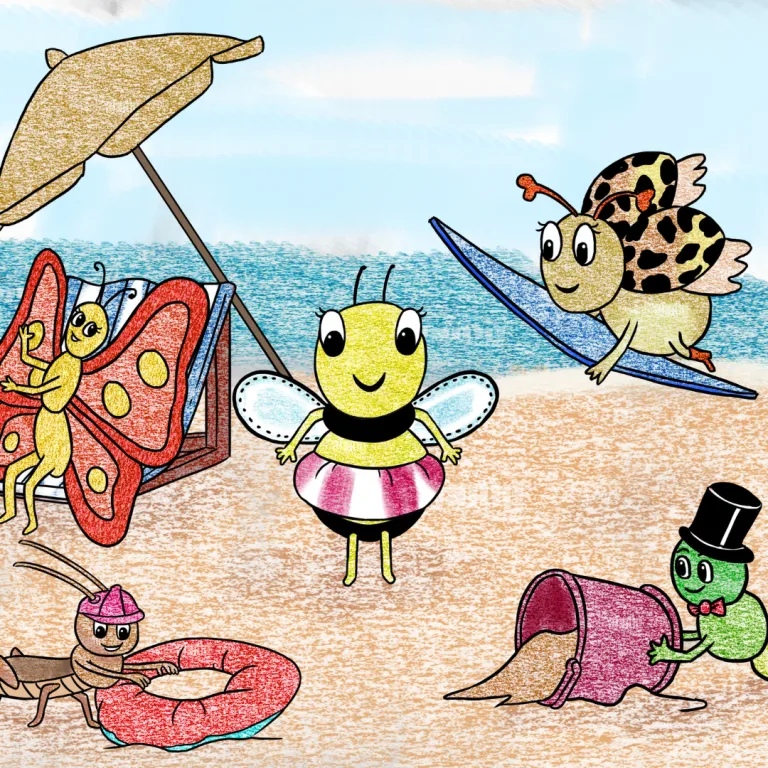
The Benefits of Sand Play
Sand play is more than just a fun activity, it is also an important component in early childhood development.
Engaging with sand allows children to explore their creativity while developing fine motor skills through digging, moulding, building, and grabbing great big handfuls of sand to throw into the ocean!
This fun activity strengthens the small muscles in their hands and fingers, which are crucial for tasks such as writing and buttoning clothes. Furthermore, the sensory experience of sand – its varying texture, weight, and temperature – stimulates children’s senses and enhances their cognitive development.
Playing with sand also encourages problem-solving skills. Children often face challenges while building structures or creating designs, which prompts them to think critically and adapt their approaches. This type of open-ended play fosters resilience as children learn to experiment and understand that not every attempt will be successful.
The Importance of Adult Engagement
As parents, your involvement in sand play can significantly enhance the experience for your child. When you engage with your child during sand play, you provide guidance and create a supportive environment that encourages exploration and imagination. Asking open-ended questions, such as: What shall we build? Or What’s next? help children to articulate their thoughts and ideas while promoting language development and strengthening relationship bonds.
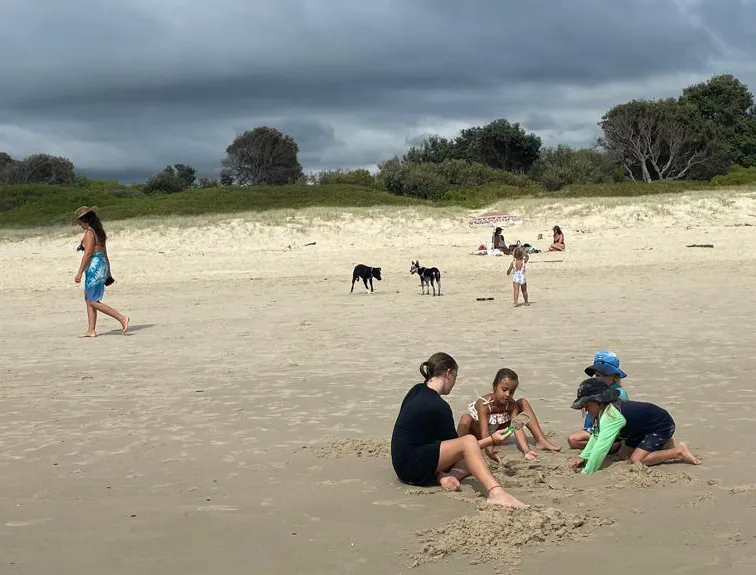
The Value of Social Play
As mentioned, sand play is an excellent opportunity for children to engage with their peers.
Whether at the beach, playground, or sandpit, playing alongside other children fosters teamwork through social interaction. When children work together to create a sandcastle or dig a tunnel, they learn valuable lessons in cooperation, negotiation, and conflict resolution. These interactions help build friendships and develop social skills that are crucial for emotional growth.
Playing in a group setting also allows children to observe different personalities, perspectives, and approaches to play. They can learn from one another, and share ideas to inspire greater creativity. For instance, one child might suggest decorating a sandcastle with shells, while another might like to add a moat. These collaborative experiences enhance creativity and teach children the importance of valuing others, their diverse ideas and contributions.
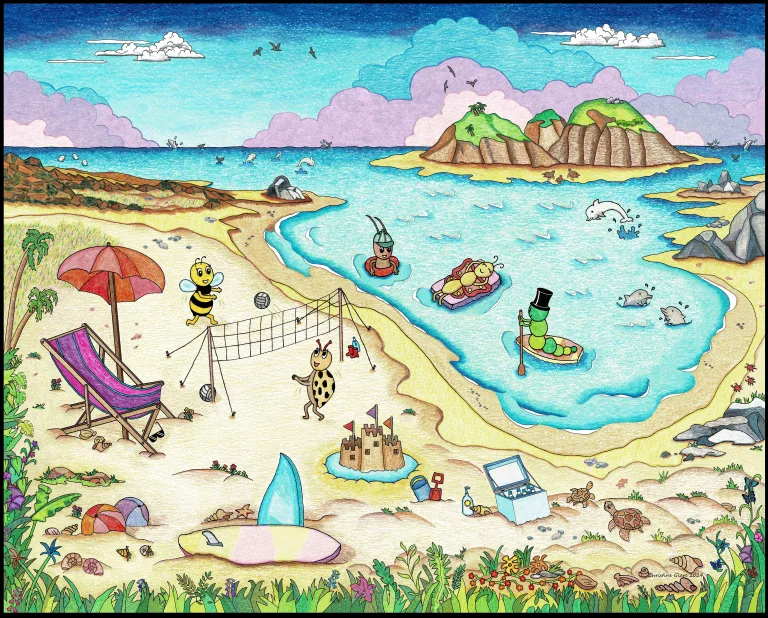
Tips for Encouraging Sand Play

Create a Sand Play Space
If you have the room, consider setting up a sandpit in your backyard. Fill it with clean, dry sand, and provide various tools, such as buckets, shovels, and moulds to encourage creativity. Access to water is important too, as this provides the glue which makes most of the sand play possible (and remember to cover the pit when not in use to prevent cats from calling).

Visit Local Beaches or Playgrounds
Take advantage of local beaches or playgrounds with sand areas. These outings provide a change of scenery and the chance for your child to interact with other children.

Join in the Fun
Don’t hesitate to get your hands sandy! Join your child in their play, whether it’s building a massive sandcastle or digging a deep hole. Your involvement will make the experience more enjoyable and memorable.

Encourage Group Play
Arrange playdates or group outings to the beach or playground. The more children involved, the more opportunities for collaboration and social interaction.

Incorporate Learning
Use sand play as a teaching moment. Discuss concepts such as measurements, shapes and textures in a fun way as you play together. So, as we tip-toe over the hot sand into the new year, let’s remember the magic of sand play and its vital role in our children’s development. By engaging with our children during sand play and encouraging them to play with others, we are fostering creativity, problem-solving skills, and social interactions that will serve them well throughout their lives.
We hope you find time to enjoy the wonders of sand play this January!
Share your sandcastle creations and playtime moments with us on social media using #ChristinesMagicalGarden. We look forward to seeing your magical moments!
Warmest wishes for a wonderful month filled with creativity and joy from the Christine’s Magical Garden Team.
PS. See the sand pit which I built over Christmas for my grandchildren, and myself as well! We love to feel the sand between our toes. And here’s Poppy and The Gang finger puppets enjoying the sand with Poppy.
PPS: It’s been a wet January so far in some areas, so if you can’t make it out to a sand pit or beach, you can keep small children busy, engaged, and developing their fine motor skills with our free downloadable activities. Head here: Activities For Kids



